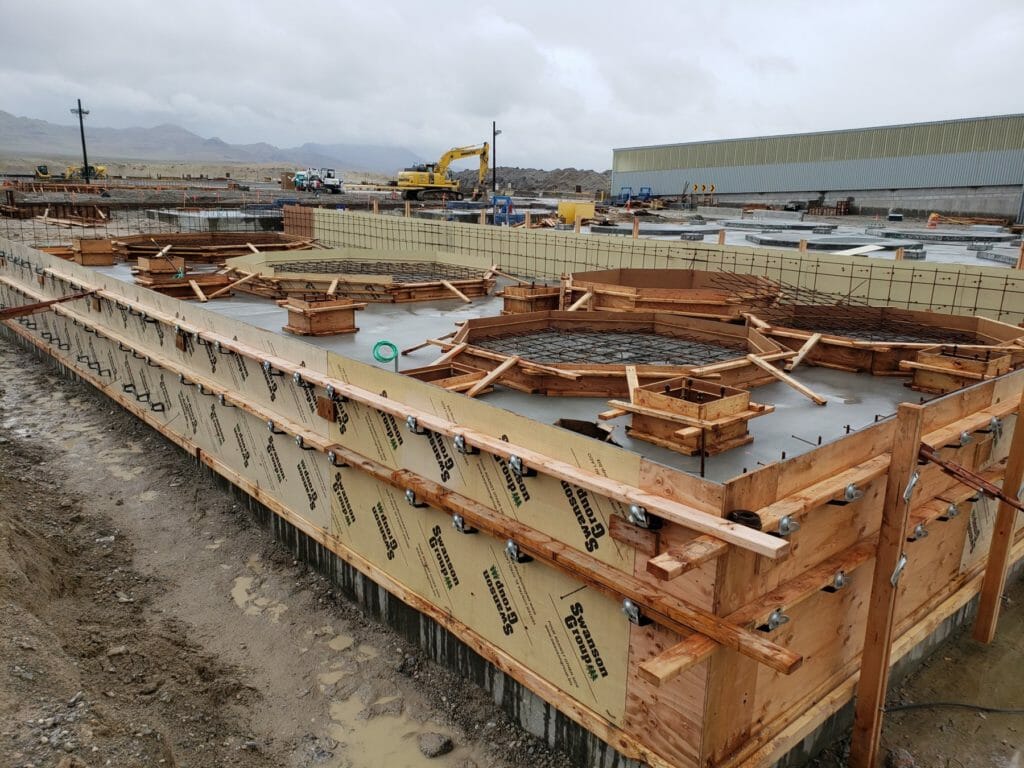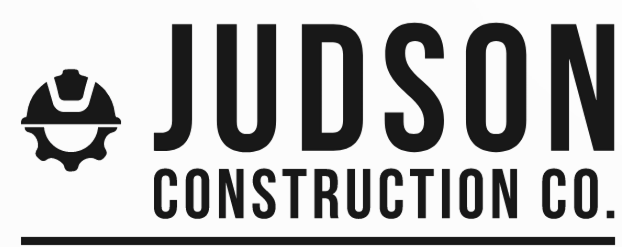
Pouring a Concrete Foundation | Judson Construction Company
Concrete cures through a hydration process, therefore, weather can adversely affect your concrete pour. This is why many projects are delayed due to rainstorms. However, did you know that your concrete pour can also be affected by extremely hot or cold weather too? If you are planning an industrial concrete construction project, Judson Construction Company offers these tips for working with concrete in any weather.
Pouring Concrete In Cold Weather
If you are pouring an industrial concrete construction project in cold weather, defined by the American Concrete Institute below 40 degrees Fahrenheit, your concrete could shrink and crack during freeze and thaws.
To pour concrete during colder weather, do the following:
- Don’t pour on frozen ground. Remove snow and ice and expose the ground to the early morning sun to warm it up.
- Make sure that any items that will be embedded in the concrete are above freezing. Don’t allow concrete to come into contact with items that are below freezing, such as rebar.
- Schedule your pour early in the morning and use a quick-set product in the concrete to speed up curing times.
- Use the right water-to-mix ratio. Too much water in your mixture or not enough will create problems during the curing stage. If the water in the mixture freezes, it could cause the concrete to weaken and crack.
- Use a heated mix.
- Use concrete curing blankets for at least three days, or set up a heated enclosure.
Pouring Concrete In Hot Weather
On the surface, it appears that pouring concrete in hot weather is ideal, but that’s not always so. Hot weather industrial concrete construction pours are affected by the humidity levels. Too dry, and concrete will cure too quickly and will not set correctly. This can cause weak concrete since hydration is what strengthens concrete.
Hot weather over 90 degrees Fahrenheit or high humidity can affect the pH levels in concrete and weaken the concrete. It may also increase microbial growth in the concrete. Mold and microbes could affect the safety of the people in the building or area.
To pour concrete during hot weather, do the following:
- Use large aggregates or hot weather admixtures like plastic additives to increase setting times so the concrete is stronger
- Use an industrial chiller, or request chilled water to mix your concrete
- Pour during cooler hours of the day. Avoid the late afternoon after the site has been baking in the sun all day. Pour in the evening and allow the concrete to set overnight
- Don’t overmix
- Spray down the subgrade or any forms
- Work quickly to get the concrete down and formed
Other Tips For Your Industrial Concrete Construction Project
When possible, avoid pouring concrete during rainstorms or other inclement weather. If you cannot delay a project any longer, try shielding the site and use industrial-grade machines to dry out the area. Make sure you have appropriate drainage and divert rainwater or snow away from the site. Avoid mixing additional water into your concrete mixture.
Finally, hire a reputable industrial concrete construction company that is experienced in concrete construction in your area and is familiar with weather patterns. Judson Construction Company services the Northwestern area and other states. We have field offices with highly trained construction teams in the following areas:
- Arizona
- California
- Colorado
- Idaho
- Montana
- Nevada
- New Mexico
- Utah
- Wyoming
If you have any questions about how to schedule and plan your next industrial concrete construction project, contact Judson Construction Company or call us at (409) 303-4200. We can help advise your next concrete pour and schedule your project during any season, regardless of the weather conditions.
